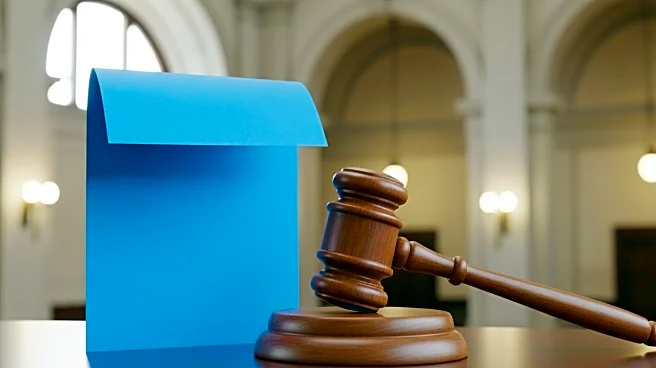What's Happening?
A recent decision by U.S. District Judge Karin Immergut, appointed by President Trump, to temporarily block the deployment of U.S. troops to Portland, Oregon, has reignited discussions about the 'blue slip' tradition in judicial appointments. This Senate custom requires judicial nominees to receive approval from the home state's senators, which in Oregon's case are Democrats Ron Wyden and Jeff Merkley. Immergut's ruling has been praised by some on the left and criticized by President Trump and his allies, who argue that the blue slip process limits the president's ability to appoint judges aligned with his judicial philosophy. Immergut, who has a background in Republican legal circles, was nominated after being recommended by the Oregon senators, highlighting the influence of the blue slip tradition in her appointment.
Why It's Important?
The blue slip debate is significant as it underscores the tension between the executive branch's desire to appoint ideologically aligned judges and the Senate's role in providing checks and balances. The tradition is seen by some as a safeguard against the politicization of the judiciary, ensuring that nominees have broader support. However, critics argue it hampers the president's ability to shape the judiciary, particularly in states with opposing political leadership. The outcome of this debate could impact future judicial appointments, potentially altering the balance of the federal judiciary and affecting rulings on key issues such as executive power and civil rights.
What's Next?
The debate over the blue slip tradition is likely to continue, with potential implications for future judicial nominations. If the tradition is abolished or modified, it could lead to more ideologically driven appointments, affecting the judiciary's independence. The Republican-controlled Senate may consider changes to the process, especially if they align with President Trump's judicial preferences. Meanwhile, Democrats are expected to defend the tradition as a necessary check on executive power. The outcome of this debate could influence the judicial landscape for years to come, affecting how federal courts address contentious issues.
Beyond the Headlines
The blue slip debate also raises questions about the broader implications of judicial appointments on the rule of law and democratic governance. The tradition's preservation or elimination could signal shifts in how judicial independence is valued in the U.S. political system. Additionally, the debate highlights the ongoing struggle between different branches of government over control and influence, reflecting deeper ideological divides within the country.









